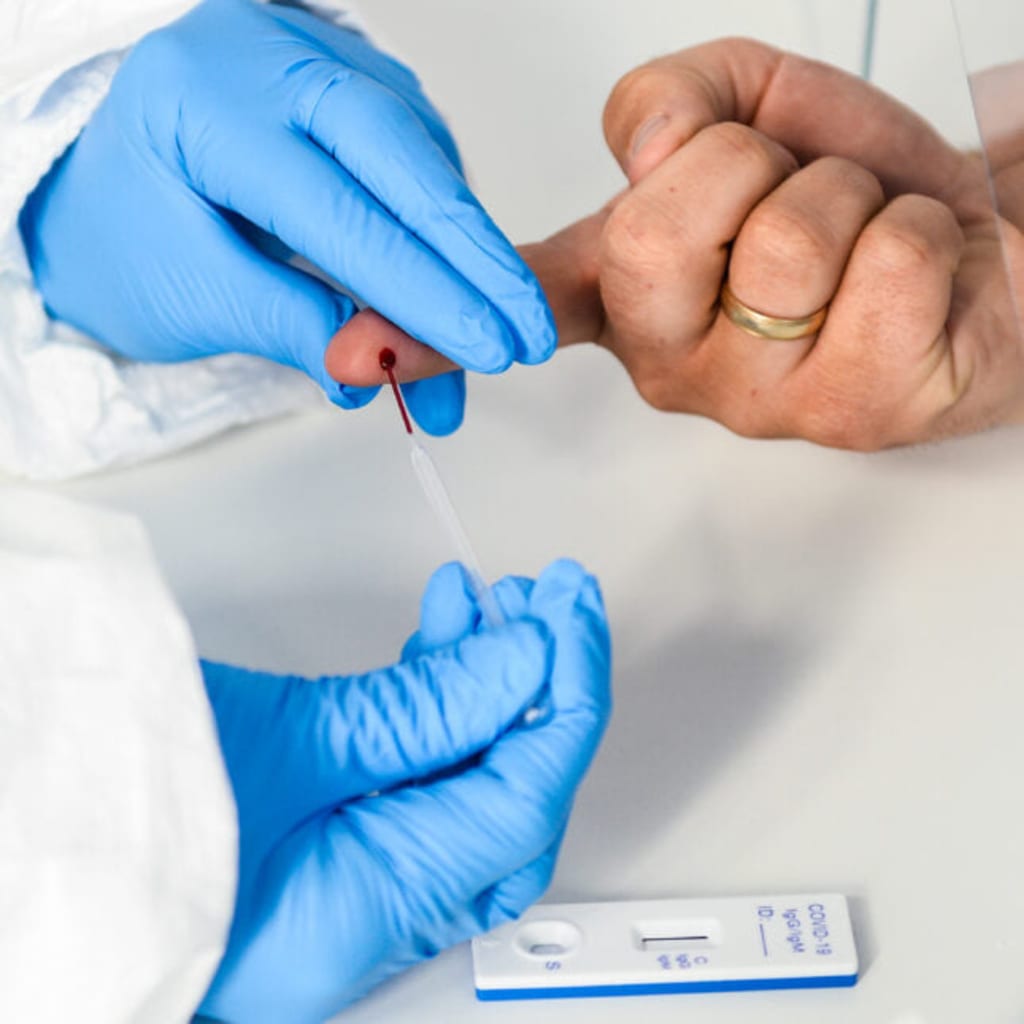Antibody Covid-19 test, everything about it
all you need to know

There is a growing interest among the population to find out if they have antibodies to the new corona virus infection, either after they have gone through the disease or after immunization. And the higher the number of these antibodies, the more protected and safe they feel. The truth is, however, that, for now, scientists claim that the value of the antibody titer cannot be correlated with the degree of protection against a possible infection.
"It is important at this time that as many people as possible have an immune response against the new corona virus. Any value of antibodies above the cut-off limit should make us happy, because it means that our body is ready to recognize the virus.
The role of antibody tests
A test for COVID-19 antibodies, also known as a serological test, is a blood test that shows if a person has antibodies against SARS-CoV-2, the virus that causes COVID-19. COVID-19 antibody tests can help identify people who have gone through the disease unknowingly because they have been asymptomatic. Also, the determination of antibodies can confirm to some people who did not get a timely RT-PCR test that the symptoms felt were indeed caused by the infection with the new corona virus.
Antibody testing for SARS-CoV-2 can therefore provide important information about a person's medical history. And scientists say that this history could be important for a possible management of future medical problems. According to an analysis published in Science Direct, there is a growing body of evidence that COVID-19 infection leaves various long-term effects, including mild forms of the disease. On the other hand, serological testing to identify a previous SARS-CoV-2 infection could be particularly useful in children with multisystemic inflammatory syndrome, as recommended by the American Society of Infectious Diseases. Another benefit of proper antibody testing is that people who have recovered from COVID-19 may be eligible to donate plasma. This convalescent plasma can be used to treat patients with severe diseases.
Antibody tests are of several types
There are different types of COVID-19 antibody tests: IgM and IgG anti-nucleocapsid antibody tests, neutralizing anti-Spike IgG antibody tests and anti-Spike Ig antibody tests:
IgM and anti-Nucleocapside IgG antibody tests are qualitative tests and can confirm or disprove the previous presence of infection and the existence of antibodies after overcoming the disease. It is recommended that the test be collected 7 to 15 days after the onset of symptoms in patients with COVID-19.
Anti-Spike neutralizing IgG antibody tests are quantitative tests that detect the titer of anti-Spike antibodies developed following vaccination or COVID-19 infection. Neutralizing antibodies are those that ensure long-term immunity after infection or after vaccination. It is recommended that the test be taken at least 15 days after the onset of symptoms or at least 15 days after the first dose of vaccine. After the booster, it is recommended to test at 7 days.
Anti-Spike Ig antibody tests show the total amount of post-vaccination or post-COVID antibodies, including IgG neutralizing antibodies. Similar to anti-Spike IgG neutralizing antibody tests, harvesting is recommended 15 days after the onset of symptoms / after the first dose of vaccine, and 7 days after the booster dose.
Today Cochrane, a global independent organization that reviews evidence from research to inform health decision-making, publishes a review of studies looking at the accuracy of COVID-19 antibody tests.
The review shows that antibody tests could have a useful role in detecting if someone has had COVID-19, but that timing is important. The tests were better at detecting COVID-19 in people two or more weeks after their symptoms started, but we do not know how well they work more than five weeks after symptoms started. We do not know if this is true for people who have milder disease or no symptoms, because the studies in the review were mainly done in people who were in hospital. In time, we will learn whether having previously had COVID-19 provides individuals with immunity to future infection
About the Creator
Maria Ostasevici
Communication and public relations student, Moldova
Instagram profile: maria.ostasevici;
mother of two awesome Dobermans.
BEST VERSION OF YOURSELF- THAT'S TRULY EPIC






Comments
There are no comments for this story
Be the first to respond and start the conversation.